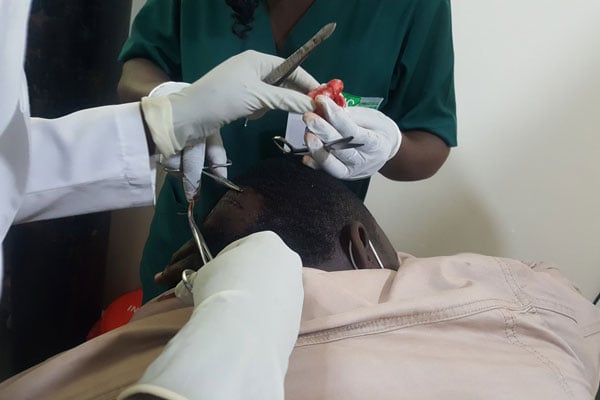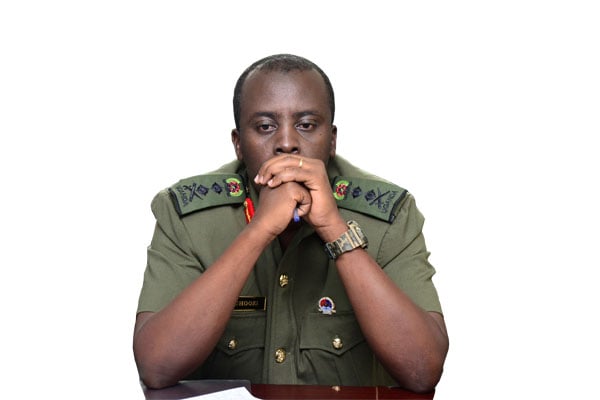Prime
Uganda maintains poor press freedom ranking

Police arrest Radio One journalist Saif-llah Ashraf Kasirye (left) at Luuka play ground in Luuka District on November 18, 2020. PHOTO/ ABUBAKER LUBOWA
What you need to know:
- The reports also cites the attacks on journalists who covered Opposition presidential candidates Patrick Oboi Amuriat (FDC) and Robert Kyagulanyi, aka Bobi Wine (NUP), ahead of the January polls, the closure of the Internet and access to social media sites.
Uganda has kept its poor global press freedom index for the third year running, with the country remaining in the 125th position globally.
In the East African region, Kenya (102nd) and Tanzania (124th) rank better than Uganda. However, South Sudan (139th), Burundi (147th) and Rwanda (156th) have the worst record in the region.
In 2020, Uganda scored 40.95 per cent in abuses against press freedom, compared to 39.42 per cent in 2019.
According to the new report by Reporters Without Borders, acts of intimidation and violence against journalists are an almost daily occurrence in Uganda.
“The security services, which are the leading press freedom violators, often target journalists and detain them arbitrarily, as was the case with several journalists investigating trafficking in fake medicines in 2019. Any criticism of the authorities can result in journalists being beaten, abducted or deprived of their equipment with impunity,” the report reads in part.
In particular, the report indicts President Museveni for being intolerant to criticism and using hate speech in his references to the media. The report makes reference to a 2018 news conference in which the President allegedly called journalists “parasites.”
The reports also cites the attacks on journalists who covered Opposition presidential candidates Patrick Oboi Amuriat (FDC) and Robert Kyagulanyi, aka Bobi Wine (NUP), ahead of the January polls, the closure of the Internet and access to social media sites.
“Since 2018, use of social media is subject to a daily tax, the first of its kind in Africa, one that further undermines journalists and media outlets. Facebook has [since] suspended certain accounts held by officials and government sympathisers, accusing them of ‘manipulating the public debate,’” the report reads in part.
“Charges of treason under the criminal code, which carry a heavy sentence, are often used to gag the media. It is not uncommon for the authorities to intervene directly to block the broadcasting of TV reports. In 2019, the police raided three commercial radio stations to cut short interviews with the opposition leader,” the report adds.
Ms Judith Nabakooba, the minister of ICT and National Guidance, said the government is doing a lot to improve relations with the media.
READ:
Govt response
“There are a number of efforts which government is undertaking to normalise relationship between the media and the security forces. One thing is that both parties need to understand the roles played by each of them and when that is done, hey will be able to work in harmony. Also the issues of capacity building for both journalists and the security forces on what is expected of them,” she said yesterday.
“Recently, we have seen UPDF coming out and apologising for the mistakes made during the riots and I think that is a good starting point and with more engagements, we shall be able to build a harmonious relationship and work together. We have seen journalists and security forces working closely during other functions and it is not during riots and violence that we see them being beaten because they mix up with the communities,” the minister added.
READ:
Africa vs world
On the continental level, Namibia tops the list of best countries for journalists at 24, followed by Cape Verde at 27 and Ghana at 30. Egypt at 166, Djibouti at 176 and Eritrea at 180 remain in the woods as some of the perilous countries for journalists. Turkmenistan and North Korea occupy 178th and 179th places globally ahead of Eritrea. Globally, the best 10 countries for journalism are Finland, Sweden, Denmark, Costa Rica, Netherlands, Jamaica, New Zealand, Portugal and Switzerland.




